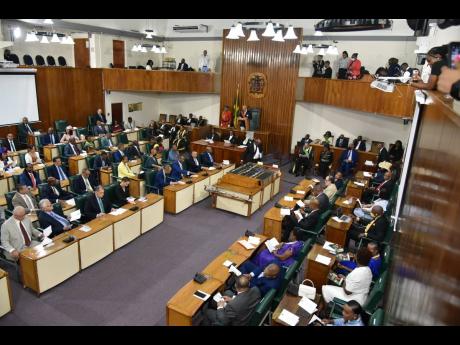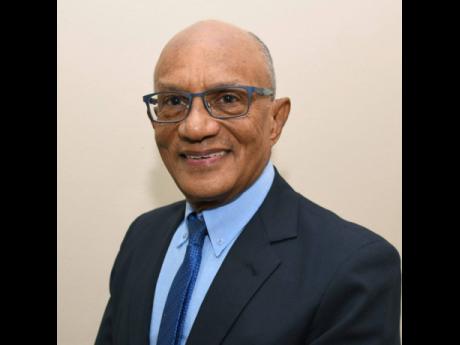Trevor Munroe | Curbing prime ministerial dictatorship
The issue of the dictatorial powers of the prime minister, and by implication of the parliamentary majority he directs, as well as how to curb these powers arose at the birth of Jamaica’s Independence Constitution, in the very Constitution Making Committee of 1962.
Curbing these powers has been discussed and important measures agreed on in every reform process since then. However, that power and the lack of accountability attached to it remains largely unchecked, indeed in some measure increased, in the May 21 report of the Constitutional Reform Committee.
The initial concern with these dictatorial powers is expressed in the verbatim notes of the Independence Constitution Making Committee by NW Manley, “To give the prime minister the absolute power to get a dissolution [of Parliament] would allow him to ‘bully’ the entire Cabinet, to say nothing of the parliamentary party”… Manley’s first vice president went further and argued that “In truth and in fact, a prime minister is a dictator for five years”… an opposition member strongly endorsed Isaac’s view: “Quite right”… “Only one minister must rule” (an extract from my book The Politics of Constitutional Decolonization Jamaica, 1944 – 1962)
The dictatorial power referenced by the Constitution makers include the powers to:
• Call a general election at any time he considers suitable to himself or his party within a five-year period. This includes the power to call a general election in anticipation of or in response to a vote of no confidence in him.
• Name as many MPs to the Cabinet as he wishes, thereby formally restricting or silencing any criticism from the ‘back bench’ of the parliamentary majority.
• Amend ordinary clauses of the Constitution by simple parliamentary majority without any prior notice.
• Appoint a head of state, governor general, or president as proposed in the constitutional reform, exercising important authority without the concurrence of the Opposition.
Over the years, deliberations in and outside Parliament, in the Constitutional Commission 1991-1994, successive joint select committees of Parliament, public representations and submissions proposed measures, some agreed, others pending, to curb executive dictatorship:
• Establish a fixed election date for both general and local government elections. This was promised in the JLP manifesto of 2011 and was again promised by Prime Minister Holness to be done in the first 100 days following the 2016 election.
• Limit the number of terms a prime minister can serve.
• Limit the percentage of MPs a prime minister can name to the Cabinet.
• Require concurrence by the Opposition in the choice of the head of state.
• Provide for impeachment of public officials, including the prime minister, for misconduct. The National Development Plan, Vision 2030 promised “Enactment of legislation for the impeachment and removal from office of public officials found guilty of misconduct, corruption, abuse of authority, or betrayal of public trust”.
In giving effect to this agreement, Prime Minster Golding stated in Parliament on May 10, 2011: “The Bill to make provision for the impeachment of public officials has been completed and is to be submitted to the Legislation Committee for final review before being brought to Parliament.”
• Provide constitutional protection against parliamentary majority manipulation, even abolition, of independent bodies designed to check Executive power, namely, the Electoral Commission of Jamaica (2006), the Office of the Political Ombudsman (2002), the Office of the Public Defender (2000), INDECOM (2010), among others. Once again, Prime Minster Golding indicated in his budget speech, “The drafting of the Bill to rectify this will shortly be tabled in Parliament”.
• Place Fundamental Rights and Freedoms of the people beyond infringement by the Executive or any organ of the State, except ‘demonstrably justified in a free and democratic society.” This was implemented following admirable public education and consultation in the Charter of Fundamental Rights and Freedoms in 2011.
The report of the Constitutional Reform Committee, of May 21, either ignores or rejects, in the context of grossly inadequate public education, consultation or explanation, these curbs on executive power. The dictatorial power of the prime minister remains, and with it, inadequate accountability. This is completely unacceptable. Education around these issues, alongside meaningful consultation, must begin now and decisions regarding this fundamental issue cannot be left to some indeterminate and unenforceable commitment to some later phase of Constitutional Reform.
Professor Emeritus Trevor Munroe is the founding director of National Integrity Action. This article is an edited version of his speech at Townhall Series: Constitutional Reform Panel at Jamaica College in May. Send feedback to info@niajamaica.org or columns@gleanerjm.com


